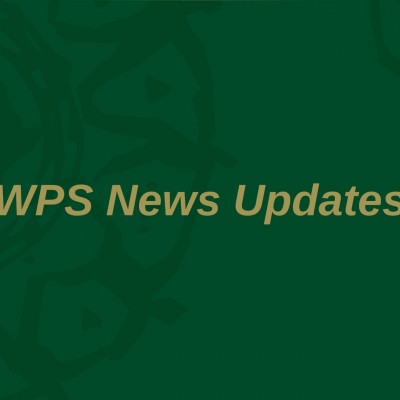First Woman Prime Minister Appointed in Togo
Source: allAfrica
President Faure Gnassingbe has named Victoire Tomegah Dogbe as the country’s prime minister. Dogbe replaces Komi Selom Klassou who stepped down with his government after just seven months, following Gnassingbe’s re-election. Dogbe is a close ally of the president and served as his chief-of-staff since 2009. She also held several ministerial positions, including grassroots development and youth employment since 2008 and is the first-ever woman to lead a Togo government.
Read more here.
Tanzania: Unfinished Business of the Beijing Platform – Gender Equality
Source: allAfrica
SEPTEMBER is mentioned as an exciting month for women and all gender advocates, as people celebrate the 25th Anniversary of the Beijing Declaration and Platform for Action.
The Anniversary reminds of the unfinished business of the Beijing Platform for Action, looking at the 12 critical areas that 189 governments committed to focus their attention to address gender inequality, said UN Women Representative Ms Hodan Addou in her welcome remarks during a roundtable dialogue last week in Dar es Salaam.
Titled: “Keeping the Momentum of the Generation Equality Campaign” and themed: “Strengthening Young Women’s Leadership and Participation in Decision Making”, the dialogue was aimed at solidification young women’s leadership and involvement in decision making for an equal future.
Read more here.
WHO Investigating Sexual Abuse Allegations in Congo Ebola Response
Source: VOA
The World Health Organization announced Tuesday it would investigate newly released reports of alleged sexual exploitation and abuse against Congolese individuals perpetrated by the WHO’s Ebola aid workers in the Democratic Republic of Congo.
A year-long investigation by the New Humanitarian and the Thomson Reuters Foundation included interviews with 51 women who recounted several instances of abuse during the 2018 to 2020 Ebola crisis — mainly by men who self-identified as working for the WHO.
The investigation also identified abuses by members of the U.N. Children’s Fund (UNICEF), Medecins Sans Frontieres, Oxfam, World Vision, the U.S. migration agency IOM, the medical charity ALIMA and Congo’s health ministry.
Read more here.
New ICAI review: Sexual exploitation and abuse by international peacekeepers
Source: Independent Commission for Aid Compact
The UK’s “leading” work to tackle the widespread problem of sexual exploitation and abuse (SEA) by international peacekeepers is relevant and important, but could be strengthened with more focus on survivors and a stronger approach to learning, a new review from the Independent Commission for Aid Impact (ICAI) has found.
The report – a companion paper to ICAI’s earlier review of the government’s Preventing Sexual Violence in Conflict Initiative (PSVI) published in January – examines the “culture of impunity” that means SEA by peacekeepers, including soldiers, police and civilian personnel, has become a persistent problem in international peacekeeping missions around the world.
ICAI found that the UK government has been a leading voice in tackling the problem, raising awareness internationally of the standards expected of troops, and funding small-scale aid projects designed primarily to drive forward UN reform. However, there was limited evidence that this work had led to reductions in SEA, and there had not been enough focus on working with survivors and vulnerable communities.
Find the report here.
COVID-19 response and recovery efforts need to address systemic gender inequality issues, experts say
Source: UN Women
Bangkok, Thailand – National strategies to recover from the devastation of COVID-19 must include steps to end the gender inequalities that have made women particularly vulnerable to the crisis, experts from around the Asia-Pacific region say.
This was clear following deliberations during an Asia-Pacific region Beijing+25 Expert Group Meeting, which was organized by UN Women and the United Nations Economic and Social Commission for Asia and the Pacific (ESCAP). The meeting gathered more than 70 gender equality advocates and experts from 22 countries, with representatives from governments, civil society groups, academia, the private sector and United Nations agencies. The meeting was convened online between 15 and 16 September, to discuss key priorities for the implementation of the Asia-Pacific Declaration on Advancing Gender Equality and Women’s Empowerment, particularly in light of the COVID-19 pandemic’s impact on women and girls. This Declaration was adopted on 29 November 2019 during the Asia-Pacific Ministerial Conference on the Beijing+25 Review.
Read more here.



